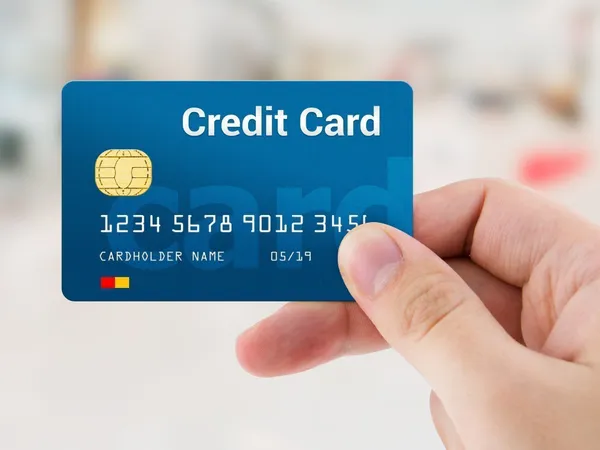In today’s world, managing your finances wisely is crucial. Credit cards and loans are two tools that can help you manage your money better, but only if you use them responsibly. Whether you’re new to credit or looking to take out a loan, understanding how these financial products work is key to making informed decisions. In this guide, we’ll break down the basics of credit cards and loans, and help you understand how to use them to your advantage.
Table of Contents
What Are Credit Cards?
A credit card is a small plastic card that lets you borrow money to pay for things. You can use it to buy products or services up to a certain limit. However, the key point is, you need to pay back the money you borrowed, plus any interest if you don’t pay it off quickly.
Credit cards are very useful because they allow you to make purchases even when you don’t have cash on hand. But, if you don’t pay your bill on time, you can end up paying much more than the original cost of the item due to interest charges. Many people fall into debt this way, so it’s important to understand how interest works.
Types of Credit Cards
There are many types of credit cards available. Let’s look at a few common ones:
- Rewards Credit Cards: These cards give you points or cash back for every dollar you spend. For example, you might get 1% back on all purchases or 3% back on groceries. Over time, these rewards can add up.
- Travel Credit Cards: If you love to travel, these cards offer miles or points that can be used to book flights, hotel stays, and more. Some cards even provide free travel insurance or no foreign transaction fees.
- Student Credit Cards: Designed for college students with little or no credit history, these cards help you build credit while offering perks like rewards or no annual fees.
- Secured Credit Cards: For people with poor or no credit, a secured card requires you to deposit money upfront as collateral. The deposit protects the credit card company, and the card helps you rebuild your credit.
How Credit Card Interest Works
If you don’t pay your full balance each month, credit card companies charge you interest on the remaining amount. The interest is usually based on an annual percentage rate (APR), which is the cost of borrowing money over a year.

For example, if your card has an APR of 20% and you owe $1,000, you’ll pay about $200 in interest if you don’t pay off the balance within a year. This is why it’s important to pay off your credit card balance in full each month if possible. If you only make the minimum payment, you’ll end up paying more in the long run.
What Are Loans?
A loan is a lump sum of money you borrow from a bank, credit union, or other lenders. You agree to pay back the loan over time with interest. Loans can be used for many things, like buying a home, a car, or paying for college. Unlike credit cards, loans usually have a fixed payment schedule, meaning you pay the same amount each month.
Types of Loans
Loans come in different forms depending on what you need them for. Here are some common types of loans:
- Personal Loans: These loans can be used for anything, like paying off credit card debt, medical expenses, or even taking a vacation. Personal loans usually have fixed interest rates and terms, so you know exactly how much you’ll pay each month.
- Auto Loans: These loans are specifically for buying a car. Auto loans often have lower interest rates because the car acts as collateral, meaning if you don’t make payments, the lender can take back the car.
- Home Loans (Mortgages): Buying a home usually requires taking out a mortgage. Mortgages are long-term loans, often 15 or 30 years, with lower interest rates than personal loans.
- Student Loans: These loans help pay for college. Many student loans have lower interest rates, and you don’t have to start paying them back until after you graduate.
- Payday Loans: These are short-term loans designed to help you until your next paycheck. However, they often have very high-interest rates and fees, making them risky options for many people.
How Loan Interest Works
Like credit cards, loans charge interest. However, with loans, the interest is usually fixed, meaning it stays the same over the life of the loan. For example, if you take out a $10,000 loan with a 5% interest rate, you’ll pay about $500 in interest each year.

Some loans, like mortgages, have variable interest rates, meaning the rate can go up or down over time. This can be risky because your payments may increase if interest rates go up.
Comparing Credit Cards and Loans
Credit cards and loans serve different purposes. Credit cards are great for everyday purchases and emergencies. You can borrow small amounts and pay them back quickly. However, if you don’t pay off your balance, you’ll face high interest rates.
Loans, on the other hand, are better for large purchases like homes, cars, or debt consolidation. Loans offer structured payments and often have lower interest rates compared to credit cards. But they also require a commitment to long-term repayment.
Choosing the Right Credit Card
When selecting a credit card, think about your spending habits and what features matter most to you. Here are some tips to help you choose:
- Look for Low Interest Rates: If you think you might carry a balance, choose a card with a low APR. This will save you money on interest charges.
- Check for Rewards: Many credit cards offer rewards for certain purchases. If you travel often, look for a card with travel perks. If you prefer cash back, there are plenty of options for that too.
- Avoid High Fees: Some credit cards charge high annual fees, especially for premium rewards cards. Make sure the benefits outweigh the cost.
- Introductory Offers: Some cards offer 0% APR for a limited time. This can be helpful if you plan to make a large purchase and pay it off over several months.
Choosing the Right Loan
Choosing the right loan depends on your needs and financial situation. Here are some things to consider:
- Loan Amount: Borrow only what you need. It might be tempting to take out a larger loan, but remember, you’ll have to pay it back with interest.
- Interest Rate: Compare rates from different lenders to find the lowest one. A lower interest rate will save you money over the life of the loan.
- Term Length: Shorter loan terms mean higher monthly payments but less interest paid overall. Longer terms will lower your payments but cost you more in interest.
- Fees and Penalties: Some loans have hidden fees or penalties for paying off the loan early. Be sure to read the fine print before signing.
Credit Scores: Why They Matter
Your credit score plays a big role in your ability to get credit cards and loans. Lenders use your credit score to decide if you’re a good risk. A high score means you’re likely to pay back the loan, while a low score means you may have trouble borrowing money or may have to pay higher interest rates.
To improve your credit score, pay your bills on time, keep your credit card balances low, and avoid applying for too much new credit at once.
How to Apply for a Credit Card or Loan
Applying for a credit card or loan is usually easy. You can apply online or in person. Here’s what you’ll need:
- Personal Information: You’ll need to provide your name, address, Social Security number, and employment details.
- Income: Lenders want to know how much money you make to ensure you can pay back what you borrow.
- Credit History: Lenders will check your credit score and credit report to see how well you’ve handled credit in the past.
Once you apply, the lender will review your information and let you know if you’re approved. If approved, they’ll tell you the interest rate and terms of the loan or credit card.
seconds until the button appears
Credit cards and loans are powerful financial tools that can help you manage your money, make big purchases, or deal with emergencies. However, it’s important to use them wisely. By understanding how interest works and choosing the right options for your needs, you can avoid debt and make your finances work for you.
Remember to always compare offers, check the fine print, and make informed decisions to ensure you’re getting the best deal. Whether you’re applying for a credit card or taking out a loan, the right choice can help you reach your financial goals.
